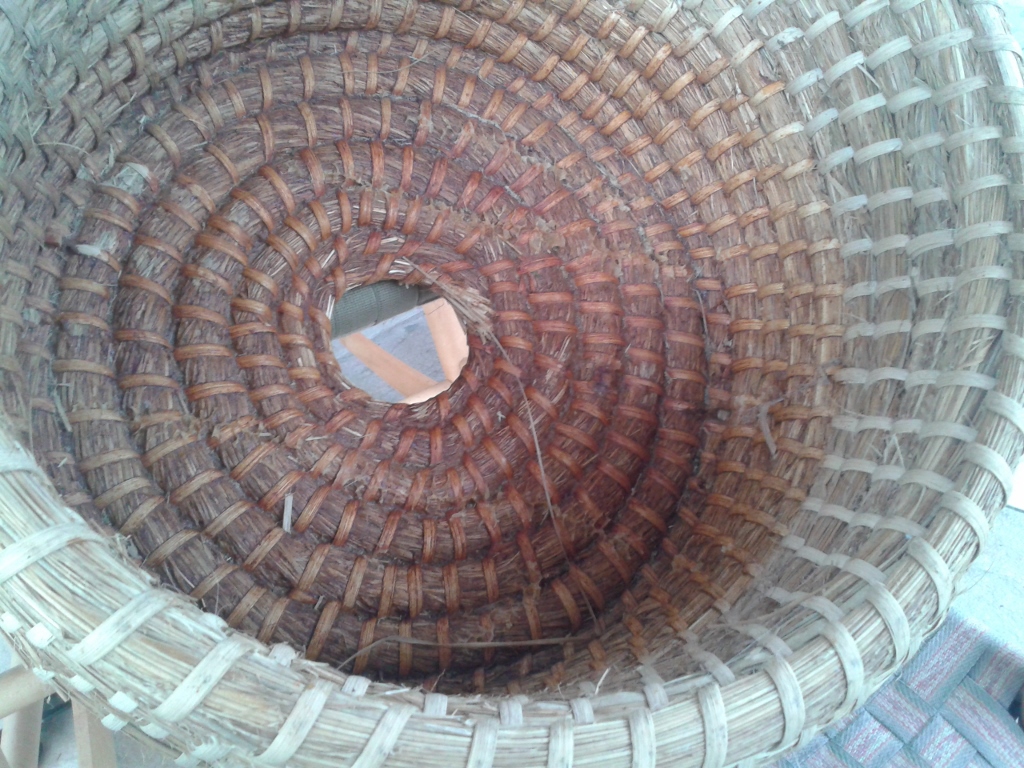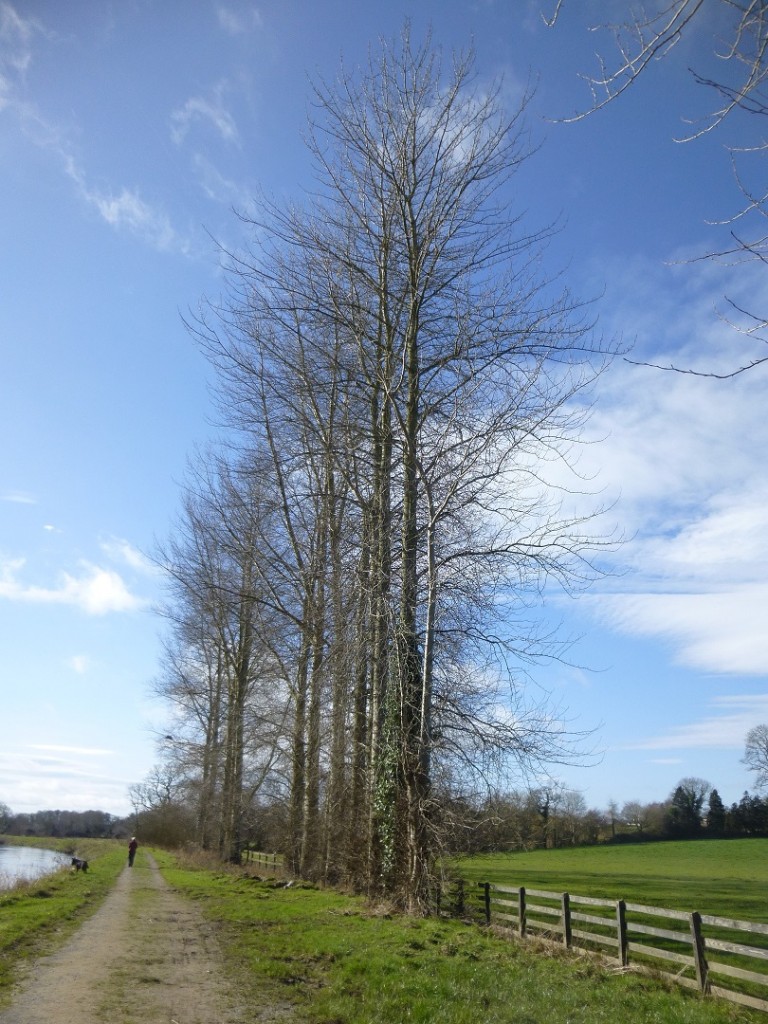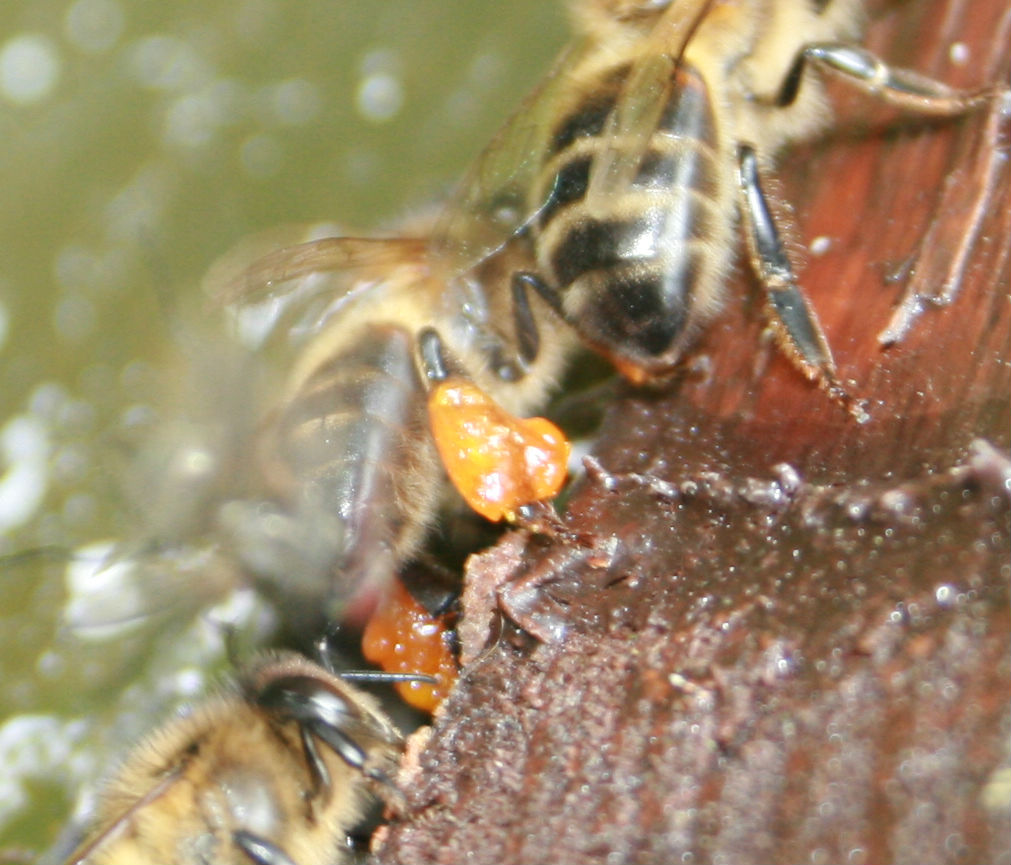Propolis is a word with Greek roots. Pro means before and polis means city. The reason propolis is called propolis is that the bees will use it to narrow the entrances to their cities (hives). The bees also use propolis to waterproof their hives from the inside or to glue down anything that is loose.

While they do tend to rely on the sticky exudations of plants they can and will bring home anything sticky such as wet paint, tar or even bubblegum. Fortunately, though they tend to prefer the natural gums that coat the buds of some trees for example the horse chestnut (Aesculus hippocastanum) or poplars (Populus spp). If you want to know what propolis smells like – stand beneath some poplars in March or April on a sunny day and that wonderful resinous smell is propoplis. If it is a warm day listen carefully and you may hear the bees at work.

They will also gather the resins that ooze from softwoods. Amber is a fossilised resin and samples have been found with bees trapped inside. Those ancient must have gone out one sunny day millions of years ago to get some propolis and got stuck there they are for us to marvel at today. A neighbour of mine once cut down a line of cypress trees in the middle of summer – the stumps continued to ooze sap and that year my hives were absolutely gummed to the gills with it.
Bees gathering propolis are bees on a mission – they have detected a draught or something loose and they head out for something to fix that with. When they find something sticky – and they’re not over fussy – they pack it into their pollen baskets (corbiculae) and head for home.

Depending on what they are up to they will either mix it with beeswax or use it neat.
In its pure form it is a reddish gum with a wonderful resinous aroma. In the summer it has a gluey consistency and it is a nuisance to beekeepers and bee breeders – in this part of the world anyway – will select against propolis gathering.
In winter when it is cold, propolis is quite brittle and is easily chipped or scraped off hive parts. If you want to harvest some nice pure propolis, spread a sheet of gauze across the top bars of the hive under the crown board, when the bees have it packed with propolis, peel it off, fold it up and put it in the freezer. Next day remove the gauze from the freezer and crumple it up over a sheet of newspaper – all the little squares of propolis will fall out onto it.
Apart from its stickiness, propolis has other properties. It is an anaesthetic which used to be used by dentists and it has antibacterial and antifungal activity so when they line the hive with it they are applying a protective shield around it – it even hinders the beekeeper.
If you want to test the anaesthetic properties – chew a small piece and you will feel a numbness in the lining of your mouth. Don’t try too big a piece or you may find your teeth all glued together.
Copyright © Beespoke.info, 2014. All Rights Reserved.
very nice your article but the word propolis Greek rather than Latin. It means pre -pre- city. Words that exist as thay are pronounced ahd written in Greek. Please when we analyze where the words or logos come from be aware of the corect information for those rea ding it. Thanks for the hospitality to be good.
Thank you for the correction.
Apologies – another Greek word?